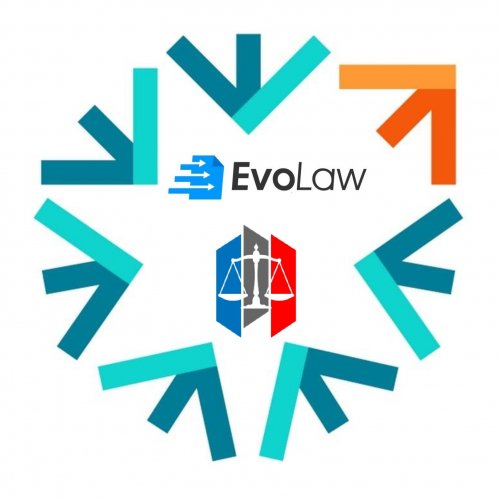Best International Trade Law Lawyers in El Salvador
Share your needs with us, get contacted by law firms.
Free. Takes 2 min.
Or refine your search by selecting a city:
List of the best lawyers in El Salvador
About International Trade Law in El Salvador
International Trade Law in El Salvador governs the rules and regulations concerning trade between El Salvador and other countries. Its primary aim is to facilitate smooth trade relations and ensure compliance with international trade agreements and local regulations. The legal framework includes a mixture of international treaties, such as those from the World Trade Organization (WTO), regional agreements like the Central American Free Trade Agreement (CAFTA-DR), and domestic laws that regulate imports, exports, tariffs, and trade compliance.
Why You May Need a Lawyer
There are several situations where individuals or businesses might require legal assistance with International Trade Law in El Salvador:
- Negotiating and drafting international trade agreements.
- Compliance with import and export regulations.
- Resolving trade disputes with foreign businesses or governments.
- Understanding the impact of international trade policies on business operations.
- Dealing with tariffs and trade barriers.
- Assisting with customs procedures and documentation.
- Handling cases related to unfair trade practices or anti-dumping regulations.
Local Laws Overview
Understanding local laws that impact international trade is crucial for compliance and successful business operations. Key aspects include:
- Tariff and Customs Laws: El Salvador's customs regulations govern the tariffs and procedures for importing and exporting goods, ensuring that duties are correctly calculated and collected.
- Import and Export Regulations: There are specific restrictions and requirements for different types of goods, including permits, licenses, and certifications necessary for compliance.
- Trade Agreements: El Salvador is a signatory to several bilateral and multilateral trade agreements, impacting duties and regulations on cross-border trade.
- Dispute Resolution: Mechanisms are outlined for resolving trade disputes, whether they originate from contractual disagreements or trade policy enforcement issues.
Frequently Asked Questions
What is the significance of trade agreements in El Salvador?
Trade agreements facilitate easier market access, reduce trade barriers, and establish cooperative trade relationships, significantly impacting the legal framework governing international trade.
What should I know about tariffs when importing goods?
Understanding the applicable tariffs for specific goods is crucial, as they affect the total cost. Tariffs may vary depending on trade agreements and the classification of goods under the Harmonized System.
Are there restrictions on exporting certain goods?
Yes, certain goods might be subject to export restrictions or require special permits. This includes goods considered as strategic materials, cultural assets, or those affecting national security.
How are trade disputes resolved in El Salvador?
Trade disputes can be resolved through negotiation, arbitration, or judicial proceedings, depending on the nature of the agreement and parties involved. International arbitration is a common choice for resolving international trade disputes.
Do I need special documentation for imports and exports?
Yes, transactions typically require documentation such as invoices, bills of lading, certificates of origin, and any relevant permits or licenses.
What happens if there's a violation of trade regulations?
Violations can lead to penalties, fines, and even criminal charges. It may also result in the suspension of trading privileges or the seizure of goods.
How can I stay compliant with trade regulations?
Staying updated with the latest regulations, consulting with trade experts or legal professionals, and implementing robust compliance programs are effective ways to maintain compliance.
Who enforces trade laws in El Salvador?
The General Directorate of Customs and the Ministry of Economy are primarily responsible for the enforcement of international trade laws and customs regulations.
What is CAFTA-DR, and how does it impact trade?
CAFTA-DR is a free trade agreement that El Salvador has with several Central American countries and the United States. It aims to eliminate tariffs and facilitate trade, offering numerous advantages for member countries.
Can I seek exemption from certain trade regulations?
In some cases, exemptions may be granted, but they typically require thorough justification and must be approved by the relevant government authority.
Additional Resources
For more information and assistance, the following resources can be helpful:
- Ministry of Economy (El Salvador): Offers guidance on trade policies and regulations.
- General Directorate of Customs: Provides updates on customs procedures and tariffs.
- Local Chambers of Commerce: Offer resources and networking opportunities for businesses engaged in international trade.
- Legal Firms Specializing in Trade Law: Provide professional advice and representation specific to trade law issues.
Next Steps
If you need legal assistance in International Trade Law, consider taking the following steps:
- Research and identify local attorneys who specialize in trade law.
- Prepare all relevant documentation and a clear outline of your legal needs.
- Schedule consultations to discuss your issues and potential legal strategies.
- Engage a lawyer who has a thorough understanding of both local and international trade laws.
Acting proactively can help in mitigating risks and ensuring compliance with trade laws to facilitate smooth business operations in the international arena.
Lawzana helps you find the best lawyers and law firms in El Salvador through a curated and pre-screened list of qualified legal professionals. Our platform offers rankings and detailed profiles of attorneys and law firms, allowing you to compare based on practice areas, including International Trade Law, experience, and client feedback.
Each profile includes a description of the firm's areas of practice, client reviews, team members and partners, year of establishment, spoken languages, office locations, contact information, social media presence, and any published articles or resources. Most firms on our platform speak English and are experienced in both local and international legal matters.
Get a quote from top-rated law firms in El Salvador — quickly, securely, and without unnecessary hassle.
Disclaimer:
The information provided on this page is for general informational purposes only and does not constitute legal advice. While we strive to ensure the accuracy and relevance of the content, legal information may change over time, and interpretations of the law can vary. You should always consult with a qualified legal professional for advice specific to your situation.
We disclaim all liability for actions taken or not taken based on the content of this page. If you believe any information is incorrect or outdated, please contact us, and we will review and update it where appropriate.
Browse international trade law law firms by city in El Salvador
Refine your search by selecting a city.














